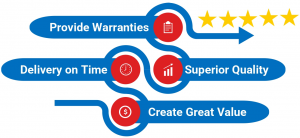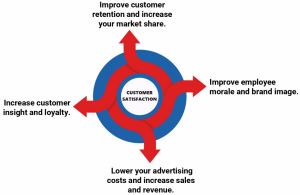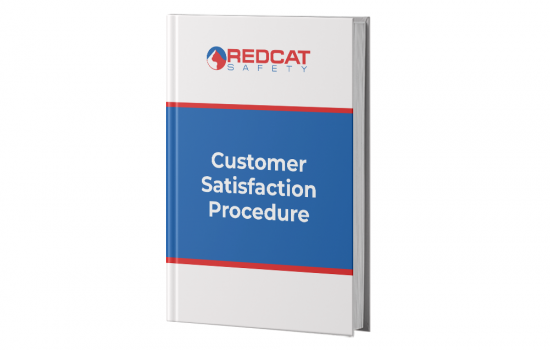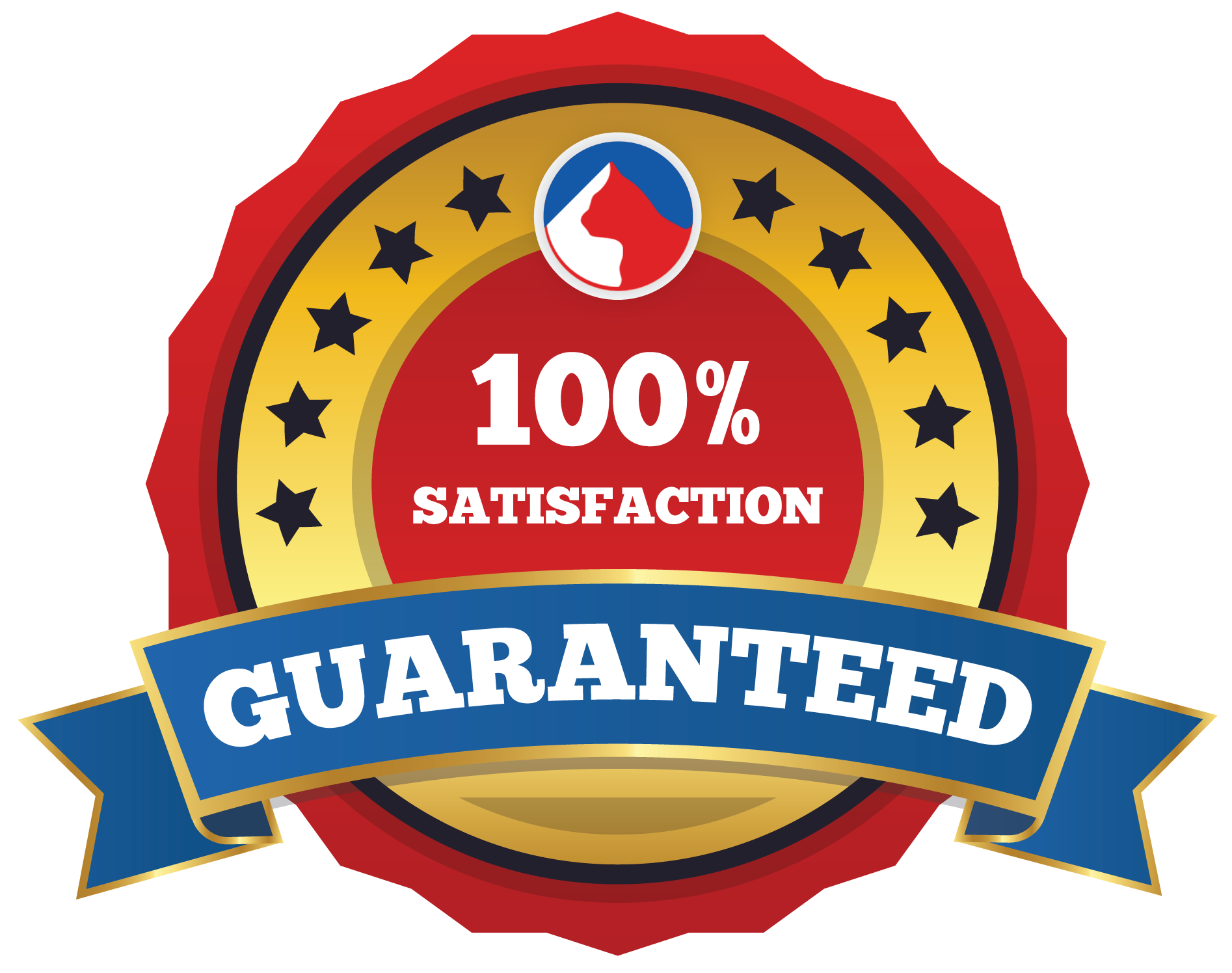What is Customer Satisfaction?
Customer satisfaction is a measure of how well a product or service meets the needs of its customers. It is often used as a metric to track the success of a business, as well as to identify areas where improvements can be made.
Customer satisfaction is important for any business because it can directly impact how successful that business is. If customers are satisfied with a product or service, they are more likely to continue using it and to recommend it to others. On the other hand, if they are not satisfied, they may look elsewhere for a better option.
How to Measure Customer Satisfaction
Customer satisfaction is a key metric for a business to track. There are many ways to measure customer satisfaction but, some methods are more accurate than others.
One of the most common ways to measure customer satisfaction is through customer surveys. This can usually be done either online or in person. Another way to measure customer satisfaction is through customer complaints.
This is a more accurate way to measure customer satisfaction because it is a direct measure of how happy or unhappy customers are with a product or service.
There are many other ways to gain information and measure customer satisfaction including:
- User opinion surveys.
- Meetings with customers.

- General customer feedback.
- Guarantee claims.
- Repeat customer analysis.
- Product returns and warranty claims.
- Repeat customers and trends in market share.
- Obtaining information to meet or exceed customer expectations.
- Acknowledgement and consumer awards.
- Customer service representative feedback on customer requirements.
- Analysis of customer grievances and customer satisfaction evaluations.
Benefits of Keeping Your Customers Satisfied
It is a well-known fact that happy customers are more likely to come back and do business with you again. They are also more likely to refer their family and friends to you. In fact, a university study found that a satisfied customer will tell nine other people about their experience, while a dissatisfied customer will tell 16 people.
Some of the benefits of customer satisfaction include:

- Improved customer retention.
- Increased market share.
- More referrals.
- Lower advertising costs.
- Increased sales and revenue.
- Improved employee morale.
- Improved brand image.
- Increased customer loyalty.
- Product development assistance.
- Greater customer insight.
- Increased customer lifetime value.
Note: Keeping customers happy results in word-of-mouth advertising, which is free and some of the best advertising there is. Satisfied customers are also more forgiving if things do happen to go wrong. They are likely to give you the benefit of the doubt and give you a chance to fix the problem.
The Importance of Customer Focus
Maintaining a focus on your customers’ needs and expectations is essential for any good business. With the rise of the internet and social media, customers have more power than ever before.
They can easily research businesses and products online, and they can share their experiences with friends and followers with the click of a button. Because of this, businesses need to make sure that they are always putting their customers first. They need to provide excellent customer service and make it easy for customers to find information about their products and services.
By ensuring that your customers’ requirements are understood, you can then convert those requirements into internal objectives. This will enable your business to continually develop and improve, subsequently maximizing customer satisfaction and trust.
Management Reviews of Customer Satisfaction
The management of an organization should review all information gained on customer satisfaction levels and present summaries of their findings at top management review meetings.
The level of customer satisfaction review should include the key parameters of measurement, for example:
- The percentage of satisfied customers.
- The percentage of dissatisfied customers.
- Customer acquisition, retention and defection.
- Cost of customer warranty claims and returns.
- Repeat business volume.
- Trends, comparisons and benchmarking of previous timeframes.
Note: ‘The customer is always right’ is a phrase that is often used in the business world but, it is one that is often taken for granted too. Keeping your customers happy should be one of a business’s top priorities, as it can have a major impact on the bottom line.
Contents of this Customer Satisfaction Procedure
- Approval.
- Purpose.
- Scope.
- Terms and Definitions.
- Roles and Responsibilities.
- Customer Satisfaction Overview.
- Customer Satisfaction Process Flowchart.
- Customer Satisfaction.
- Customer Satisfaction Surveys.
- Customer Feedback.
- Corrective Actions.
- Customer Data Analysis.
- Returns and Warranty Claims.
- Reviews.
- Related Procedures, Forms and Documents.
- Review Criteria.
- Record Management.
- References.
Why Choose to Buy this Customer Satisfaction Procedure
- This 8-page customer satisfaction procedure template can assist you describe the methods for measuring, monitoring and interpreting customer perception and determine if your business is meeting customer expectations.
- The procedure can be applied to the assessment processes of determining customer satisfaction levels by obtaining input from the various sources that are defined in the procedure.
After purchasing this template you will be able to:
- Very easily edit and customize the template to create your own procedure.
- Apply your own style, format and brand to the procedure.
- Use it in any industry or sector regardless of the size or type of organization.
Availability and Use of this Customer Satisfaction Procedure
- This procedure is accessible to you right now by clicking the ‘Buy Now’ button.
- The procedure will be delivered to you in fully editable Microsoft Word format for immediate and full use in your business.
- There are no subscriptions, contracts or ongoing costs.
This Customer Satisfaction Procedure is 100% Satisfaction Guaranteed.


